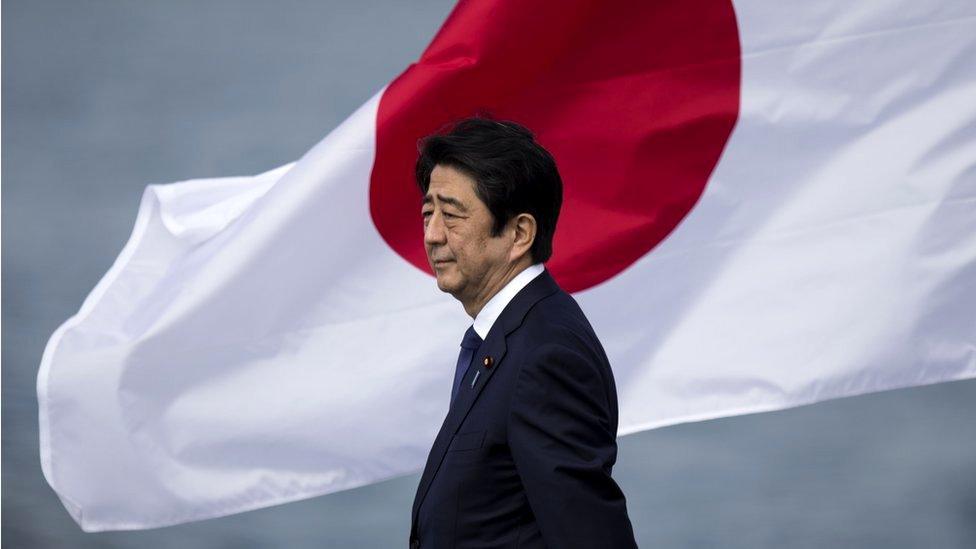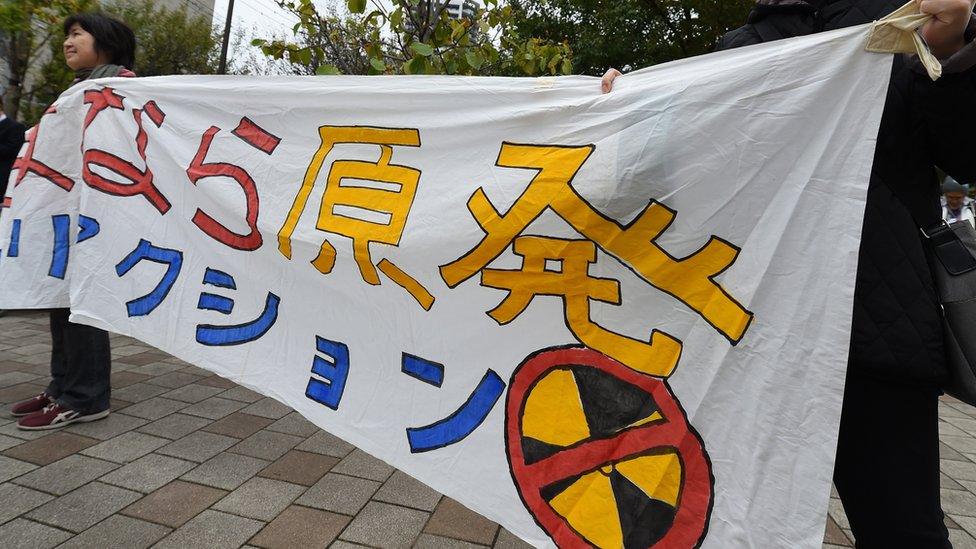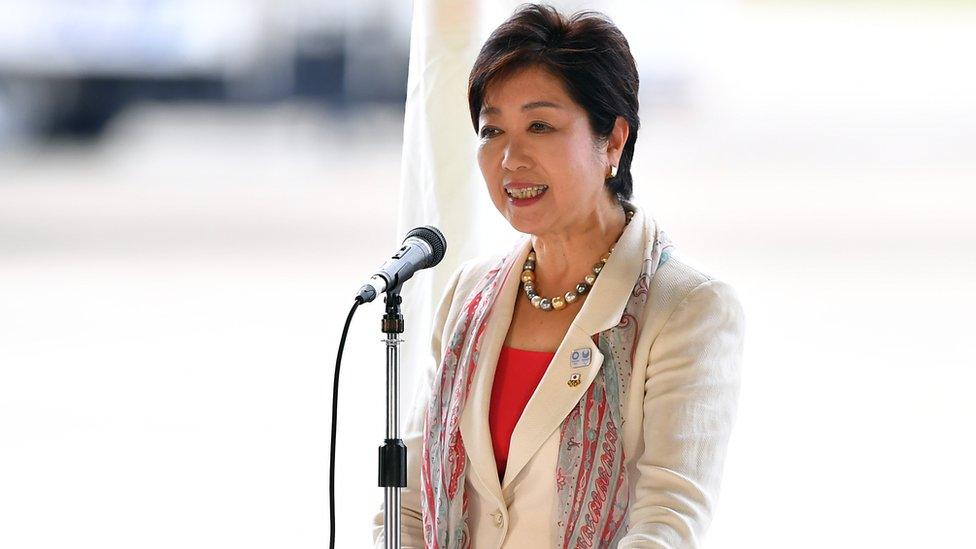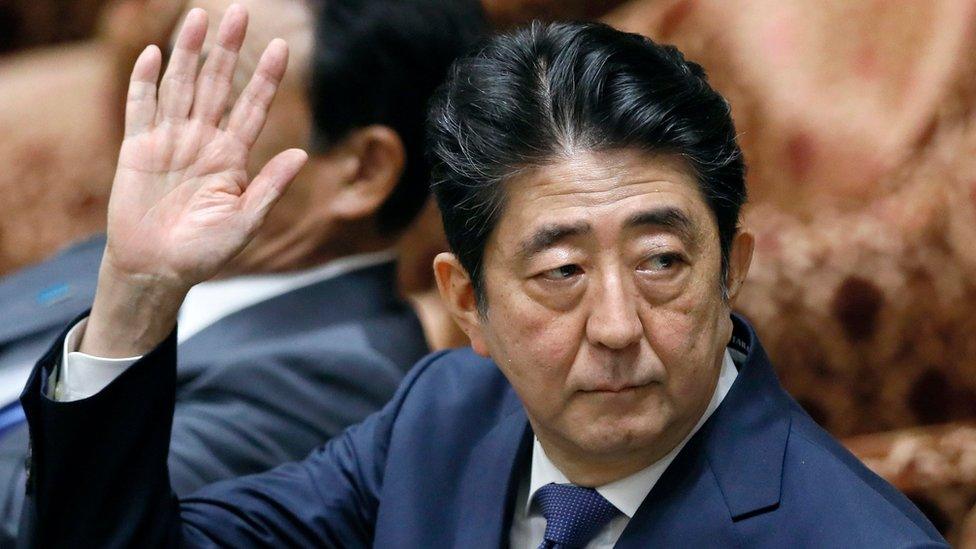Japan's snap election explained
- Published

Japan has voted in a snap election called by Prime Minister Shinzo Abe.
He called the vote in September, saying he was seeking a fresh mandate to overcome "a national crisis" amid rising threats from North Korea.
His decision came at a time when his approval rating had just rebounded from a record low over the summer, and with the political opposition largely in disarray.
Mr Abe appears on course to win the vote which would put him on track to becoming the longest-serving political leader in Japan's post-war history.
What are the choices?
Incumbent Shinzo Abe from the Liberal Democratic Party (LDP) has campaigned on a tough stance on security and North Korea, and a focus on social policies at home.
After a short-lived first stint as prime minister in 2006, he returned to power after a landslide election win in 2012. However, his sweeping promises to lift the economy out of years of stagnation have proved difficult to fulfil.
He is also backing a full return to nuclear power, a policy that has been unpopular in the wake of the 2011 Fukushima disaster.

Many Japanese people remain opposed to nuclear power
Traditionally, the main challenger to the LDP would have been the Democratic Party but the party went through a tumultuous leadership struggle in July and in late September entirely fell apart.
Its former members are now running as independent candidates or for other small parties, the most notable one being the Constitutional Democratic Party of Japan (CDPJ) formed only earlier this month.
Mr Abe faced though a new challenge from a former LDP cabinet member and current Tokyo Governor Yuriko Koike, who in September launched a new national party.
Yet the initial strong public support has since faltered, in part because Ms Koike decided not to run herself and because there was little time to prepare its election campaign.
Her Party of Hope's are not too different from that of conservative incumbent Abe has to offer but differ by promising to freeze a planned sales tax hike and to exit nuclear power by 2030.

Though not running herself, Yuriko Koike remains a future challenger to Mr Abe
The president's former ally is still considered a potential future challenger to the LDP and might well run in the next general election after this one.
Why snap elections?
Analysts see the snap vote as Mr Abe's attempt to ride his resurgent support to victory by exploiting the weakness of the opposition.
For months earlier in the year, Mr Abe's popular support had been badly hit by a string of scandals and unpopular policies.
He was accused of using his influence to help a friend secure approval to open a private university - a claim he denies
He was accused of links to an ultra-nationalistic school that was sold government land at a fraction of its value - another claim he denies
He pushed for a shift in Japan's post-war pacifist defence policy, calling for formal recognition of the military in the constitution
He introduced a widely criticised anti-terror law
In July, his ratings had dropped to less than 30% but then recovered and surged back to above 50% in September.
The slump in ratings had also put pressure on Mr Abe from within his own party and a strong result on Sunday would likely silence the rivals within his camp.
What next?
The next Abe government appears to be able to retain its two-thirds majority needed for any changes to the constitution.
Following Japan's defeat in World War Two, the country's constitution bars the military from using force to resolve international conflicts except in cases of self-defence.
- Published24 July 2017
